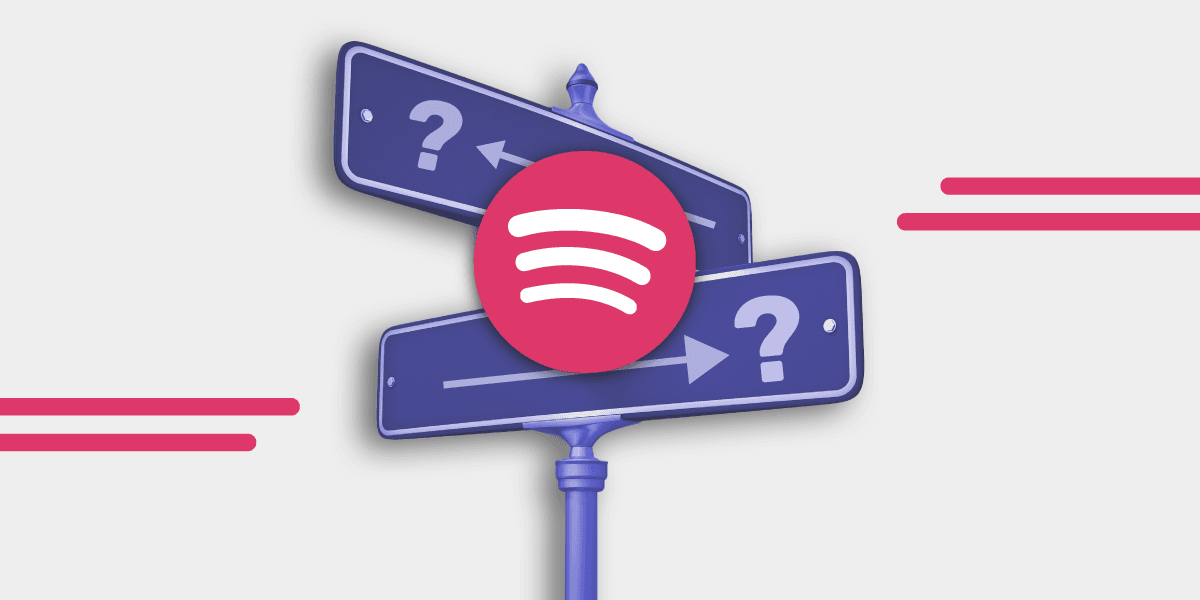Music news, tips & stories
Stay updated with the latest music streaming insights, playlist management tips, and industry news.
What is Playlist Management? A Guide for Music Lovers
November 3, 2025
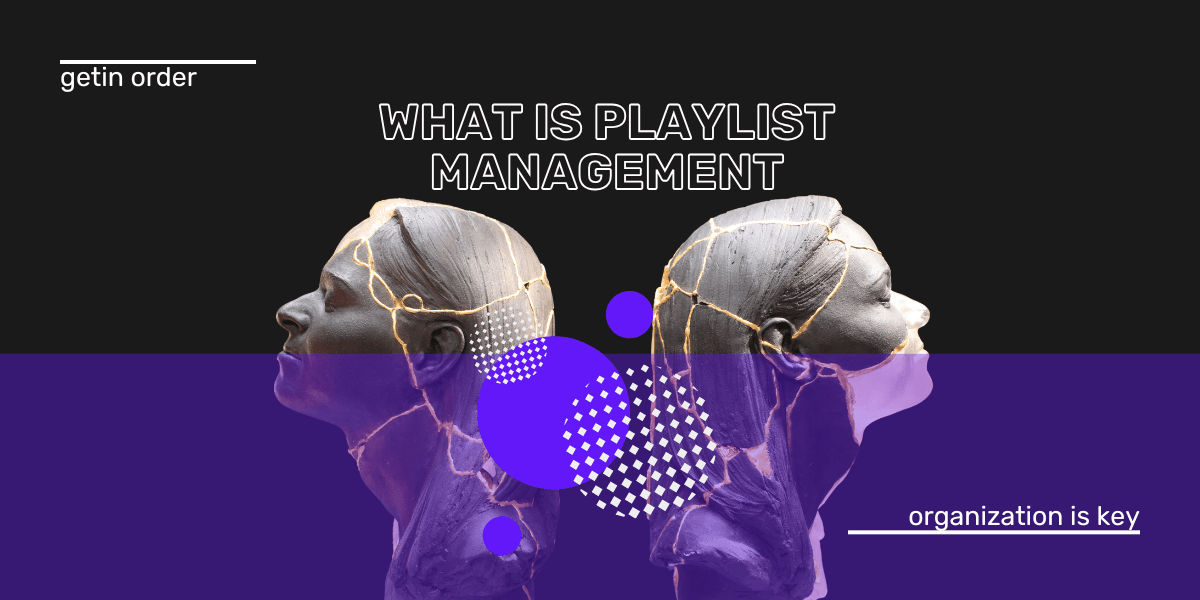
More and more people aren't just randomly sorting their favorite songs—they're focusing on structured playlist management. Sounds like more work and less music fun at first? But actually, over 70 percent of all streaming fans use individual playlists to make their music experience unique. The real surprise lies in how much smart playlist management changes listening habits and even helps discover new musical treasures.
Table of Contents
- The basics of playlist management: definition and significance
- What does playlist management mean?
- Why is playlist management important?
- Why playlist management matters for musicians and users
- Significance for musicians
- Significance for music users
- How playlist management works on streaming platforms
- Manual playlist management
- Algorithmic playlist recommendations
- Essential concepts of playlist management and their impact on music
- Cultural significance of playlists
- Technological dimensions of playlist management
- Practical examples of effective playlist management
- Thematic playlist curation
- Strategies for playlist optimization
Quick Summary
| Insight | Explanation |
|---|---|
| Playlist management improves listening experience | A well-organized playlist optimizes music selection and promotes new discoveries. |
| Regular updates are crucial | Update your playlists to reflect relevant music and current moods. |
| Thematic playlists promote emotional expression | Curate playlists by mood or occasion for a deeper personal connection. |
| Algorithms help with music selection | Streaming services offer personalized recommendations based on your listening behavior. |
| Playlist management is a creative process | It requires combining personal taste, technology, and strategic thinking. |
The Basics of Playlist Management: Definition and Significance
Playlist management is more than just compiling music pieces. It's a systematic approach to organizing, managing, and optimizing personal music collections in the digital music world. With our comprehensive transfer service, music lovers can seamlessly manage their playlists across different streaming platforms.
What Does Playlist Management Mean?
Playlist management encompasses all activities for strategic management of music collections. This includes:
- Organizing music pieces by mood, genre, or occasion
- Regularly updating and curating playlists
- Backing up and synchronizing music collections
According to a study by the Music Information Center, over 70% of streaming users utilize individual playlists to personalize their music experiences.
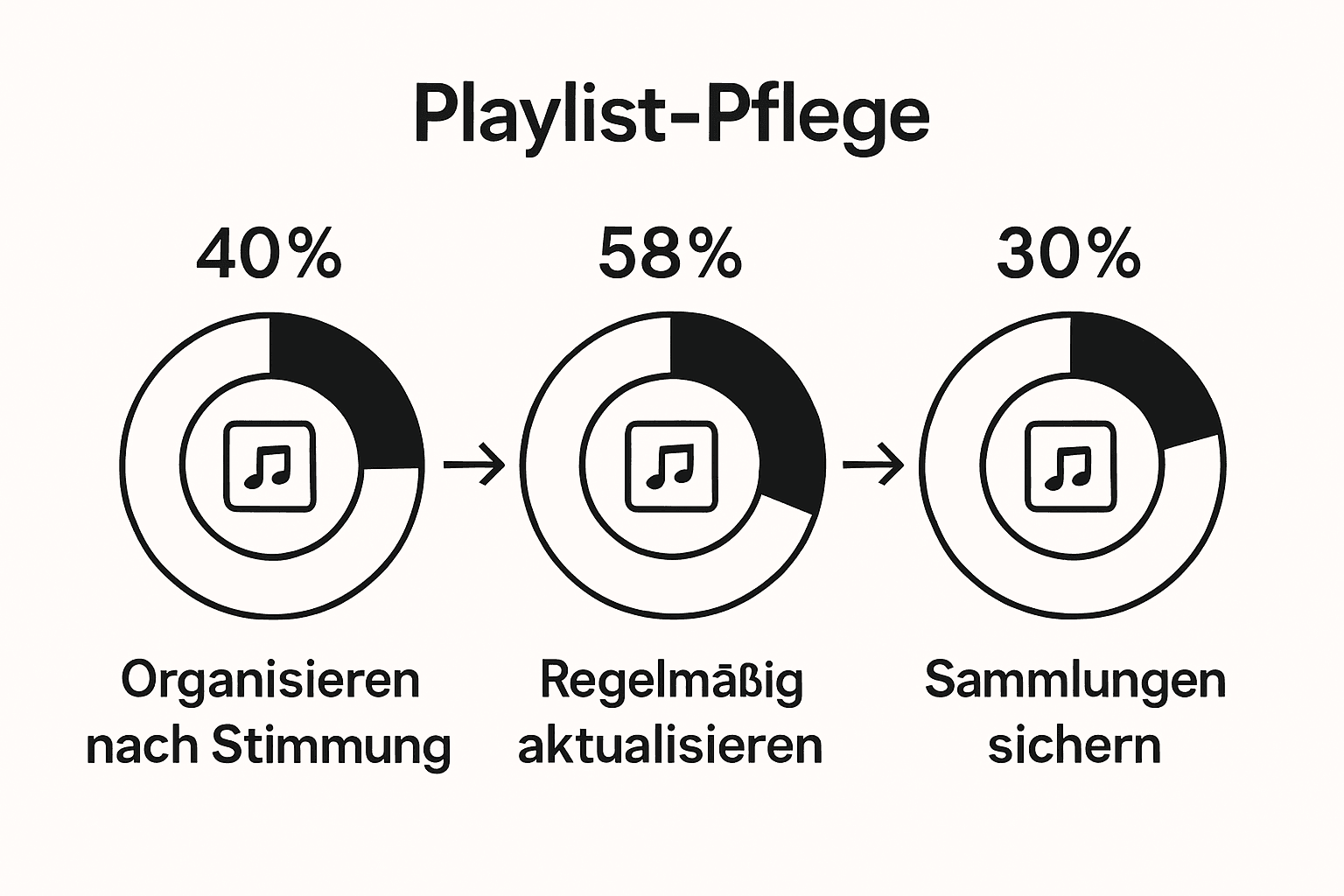
Why Is Playlist Management Important?
A well-maintained playlist is more than a random collection of songs. It's a personal musical archive that reflects emotions, memories, and individual tastes. Professional music lovers and enthusiasts understand that a well-organized playlist not only improves the listening experience but also facilitates the discovery of new musical directions.
The importance of careful playlist management lies in its ability to shape musical journeys, convey moods, and tell personal music stories.
Why Is Playlist Management Important for Musicians and Users?
Playlist management is a crucial aspect of modern music culture, offering significant benefits to both musicians and listeners. With our transfer service for Spotify playlists, music lovers can seamlessly manage their collections.
Significance for Musicians
For musicians, playlist management is more than just an organizational technique. It's a strategic tool for expanding reach and gaining fans. Professional musicians use playlists to:
- Define their musical direction
- Reach new audiences
- Strengthen their artist brand
According to a music industry study, well-curated playlists can significantly increase artist visibility.
Significance for Music Users
For music lovers, playlist management goes far beyond a simple music collection. It's a personal expression of taste, emotion, and lifestyle. A carefully maintained playlist enables:
- Emotional regulation
- Mood direction
- Musical discovery journeys
The art of playlist management transforms music from a passive listening experience into an active, creative experience of self-design and identity expression.
For a better overview of the various stakeholders and their benefits, this table summarizes the central importance of playlist management for musicians and music users.
| Role | Benefits Through Playlist Management |
|---|---|
| Musicians | Reach expansion, audience development, brand building |
| Music Users | Emotional regulation, mood control, personal expression opportunities |
| Enthusiasts | Discovery of new musical directions, active music experience, identity expression |
| Music Platforms | Personalized experiences, user retention, better recommendation algorithms |
How Does Playlist Management Work on Streaming Platforms?
Playlist management on modern streaming platforms is a complex process that intelligently combines manual interaction and algorithm-based recommendations. With our YouTube to Pandora transfer service, users can seamlessly manage their music collections.
Manual Playlist Management
Users have extensive options on streaming platforms to customize their playlists individually. This includes:
- Adding and removing tracks
- Rearranging music pieces
- Renaming and categorizing playlists
According to a scientific study, music lovers spend an average of 3-5 hours per month on manual playlist maintenance.
Algorithmic Playlist Recommendations
Modern streaming services use advanced algorithms to give users personalized music recommendations. These systems analyze:
- Listening behavior
- Music taste
- Genre preferences
The algorithms automatically suggest new tracks that match the existing playlist and expand the music experience.
The following table offers a compact comparison between manual playlist management and algorithmic playlist recommendations on streaming platforms.
| Approach | Description | Time Investment | Degree of Personalization |
|---|---|---|---|
| Manual Management | Users arrange, name, and update playlists themselves | 3-5 hrs/month | Very high, individual |
| Algorithmic Recommendation | AI-based suggestions based on listening behavior | Minimal, automated | High, data-driven |
Playlist management is a dynamic process that unites creativity, personal taste, and technological intelligence. It enables users to continuously shape and develop their musical identity.
Essential Concepts of Playlist Management and Their Impact on Music
Playlist management is evolving from a simple music collection into a complex cultural phenomenon with far-reaching effects on the music industry. With our Spotify to Pandora transfer service, music lovers can seamlessly transfer their collections between platforms.
Cultural Significance of Playlists
Playlists are more than just collections of songs. They function as digital music archives that convey personal stories, emotions, and social identities. Musicians and listeners use playlists as:
- Communication tools
- Emotional expressions
- Cultural memory storage
According to a scientific study, playlists can even serve as ethnographic tools that provide insights into individual and collective music experiences.
Technological Dimensions of Playlist Management
Modern playlist management is based on complex technological mechanisms that intelligently combine various data sources. Algorithms analyze:
- Acoustic characteristics of songs
- User listening behavior
- Social music networks
These technologies enable precise and personalized music curation that goes far beyond traditional music selection.
Playlist management is a dynamic process that unites creativity, technology, and cultural significance. It transforms the way we experience, consume, and interpret music.
Practical Examples of Effective Playlist Management
The art of playlist management requires strategic thinking, musical sensitivity, and technological understanding. With our transfer options, music lovers can professionally manage their collections.
Thematic Playlist Curation
Thematic playlists are a powerful method for purposefully shaping music experiences. Music lovers can organize playlists according to various criteria:
- Mood-based compilations
- Activity-specific music selections
- Temporal or historical music collections
According to an educational study, well-curated playlists can be not only entertaining but also education-oriented.
Strategies for Playlist Optimization
Professional playlist management includes several central strategies:
- Regularly updating music selection
- Analyzing listening statistics
- Experimenting with music genres and styles
Through continuous adjustment and reflection, playlists evolve from static music collections into dynamic, living music experiences.
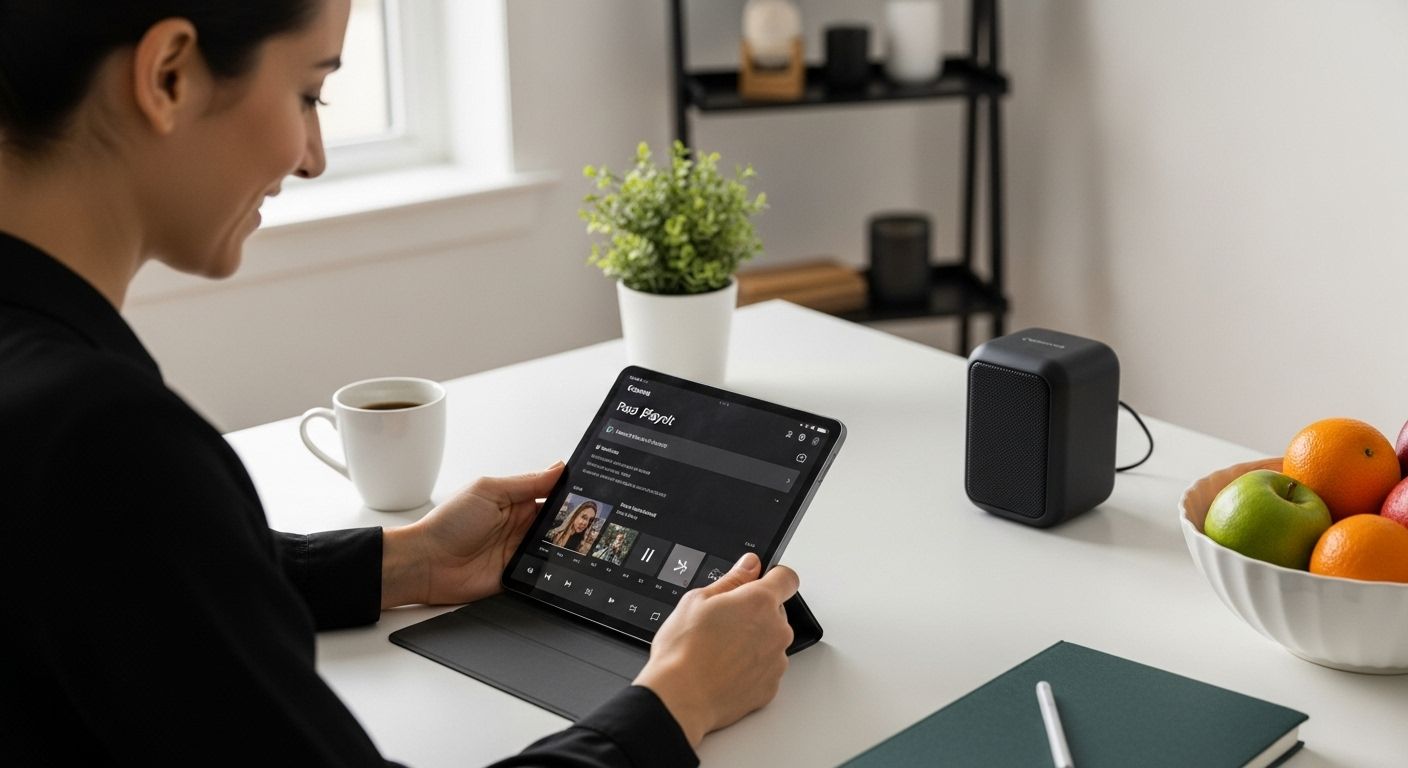
Playlist management is more than a technical exercise. It's a creative art form that intelligently connects personal music preferences, technological possibilities, and emotional depth.
Say Goodbye to Time-Consuming Playlist Rebuilding!
You've learned in the article how important continuous playlist management is. You probably know the problem well—manually transferring your personal music collections between Spotify, Apple Music, or other services over and over. It costs time and you easily lose the structure you've lovingly maintained. Free Your Music was developed to help exactly here. With automatic synchronization and reliable transfer of your playlists, you ensure all collections stay current with just a few clicks—without stress or data loss.
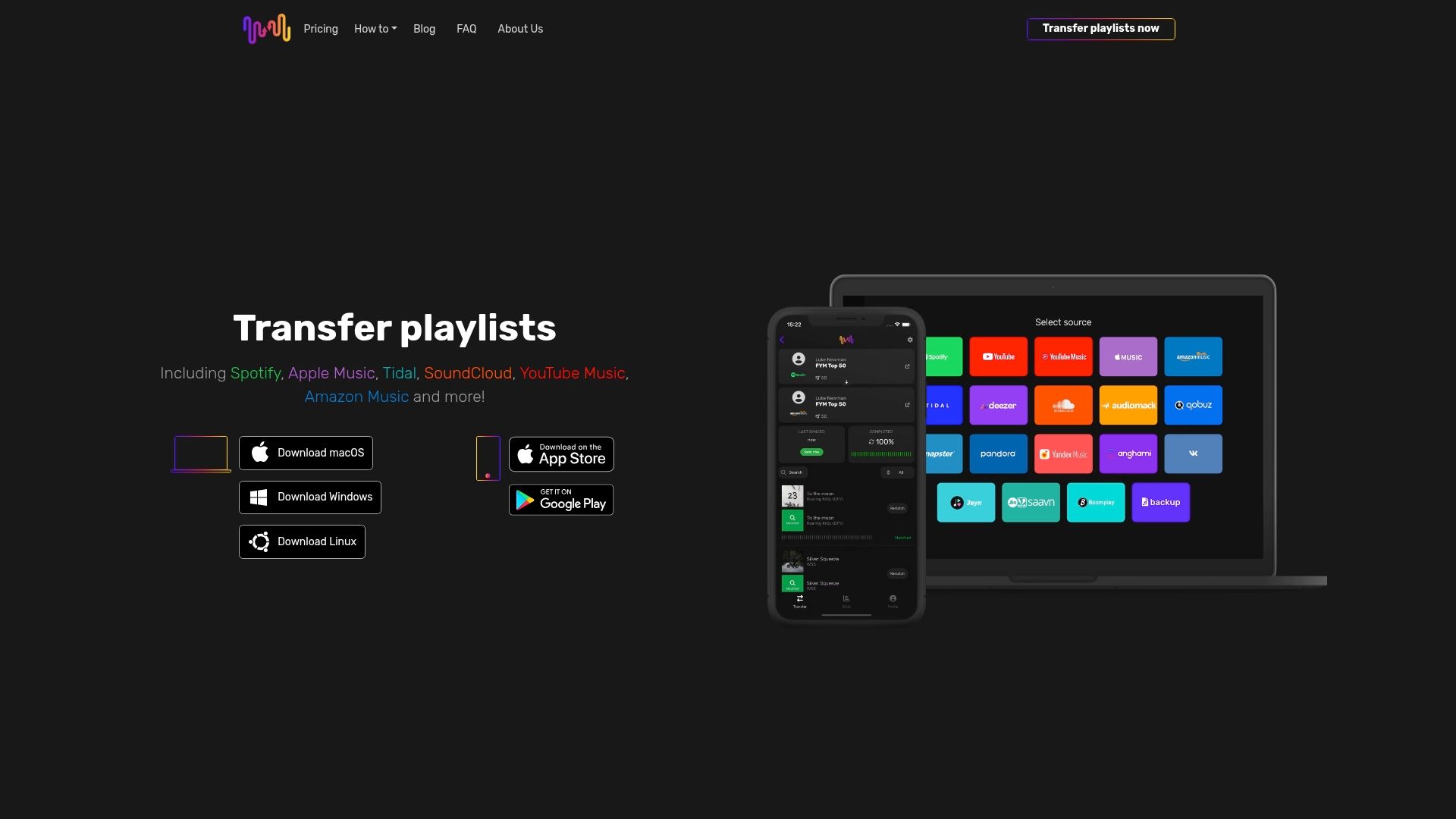
Start now and take your playlist management to the next level. Use the advantages of our user-friendly app and discover how easy music management can really be. Learn more at Free Your Music or find out directly about secure playlist transfer between streaming services. Don't put it off—secure your playlists today and enjoy your perfect music collection anytime!
Frequently Asked Questions
What is playlist management?
Playlist management is the systematic approach to organizing and managing music collections in digital streaming services. It includes curating, updating, and backing up playlists to optimize the listening experience.
Why is playlist management important for music lovers?
A well-maintained playlist reflects individual music taste and enables music lovers to express their emotions and memories through music. It also improves the overall listening experience and facilitates the discovery of new music.
How does playlist management work on streaming platforms?
On streaming platforms, playlist management is supported through manual management, such as adding or removing tracks, and through algorithmic recommendations. Algorithms analyze listening behavior and preferences to deliver personalized suggestions.
What strategies exist for optimizing playlists?
To optimize playlists, users should regularly update their music selection, analyze listening statistics, and experiment with different music genres to create dynamic and engaging music experiences.
